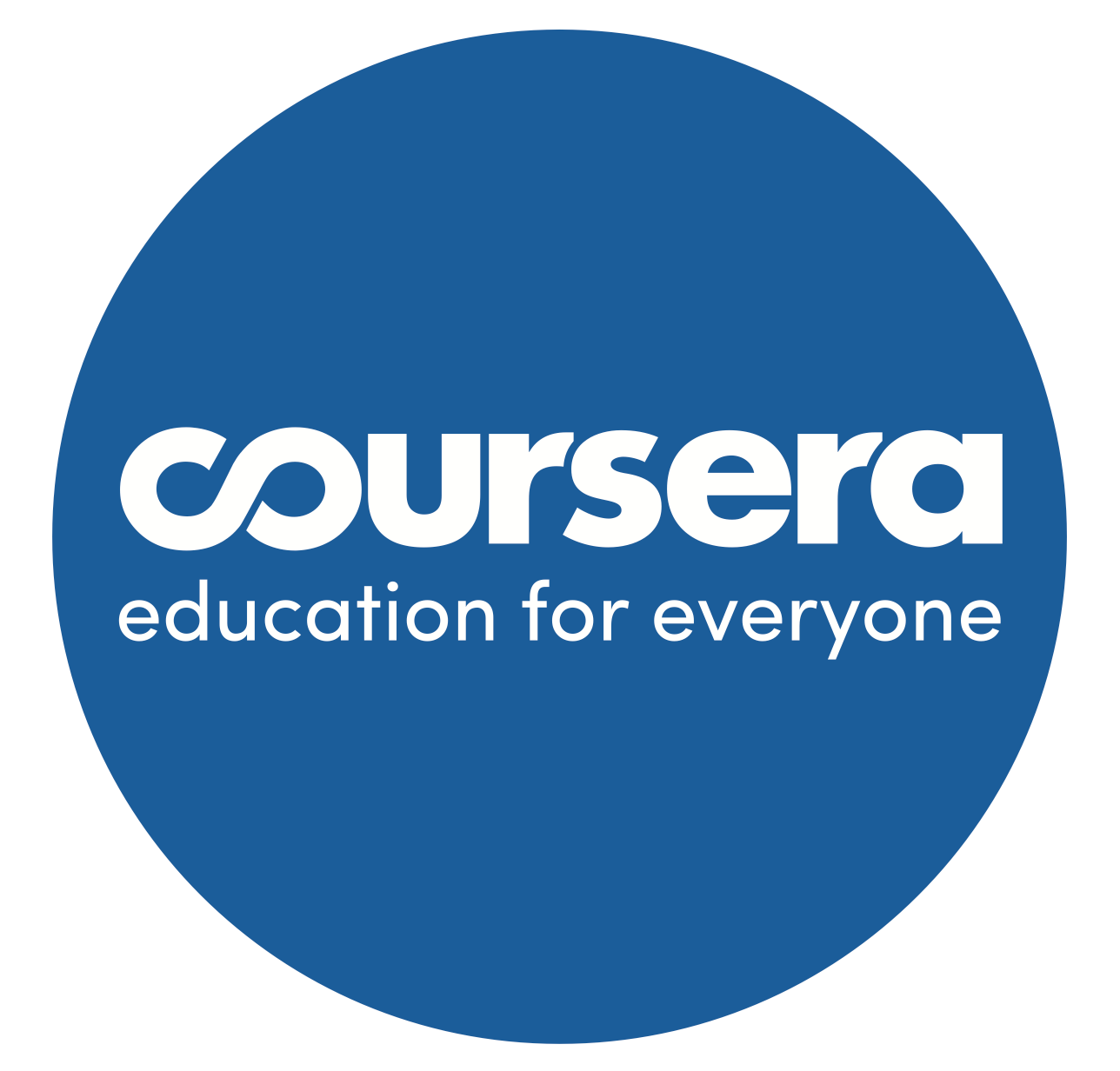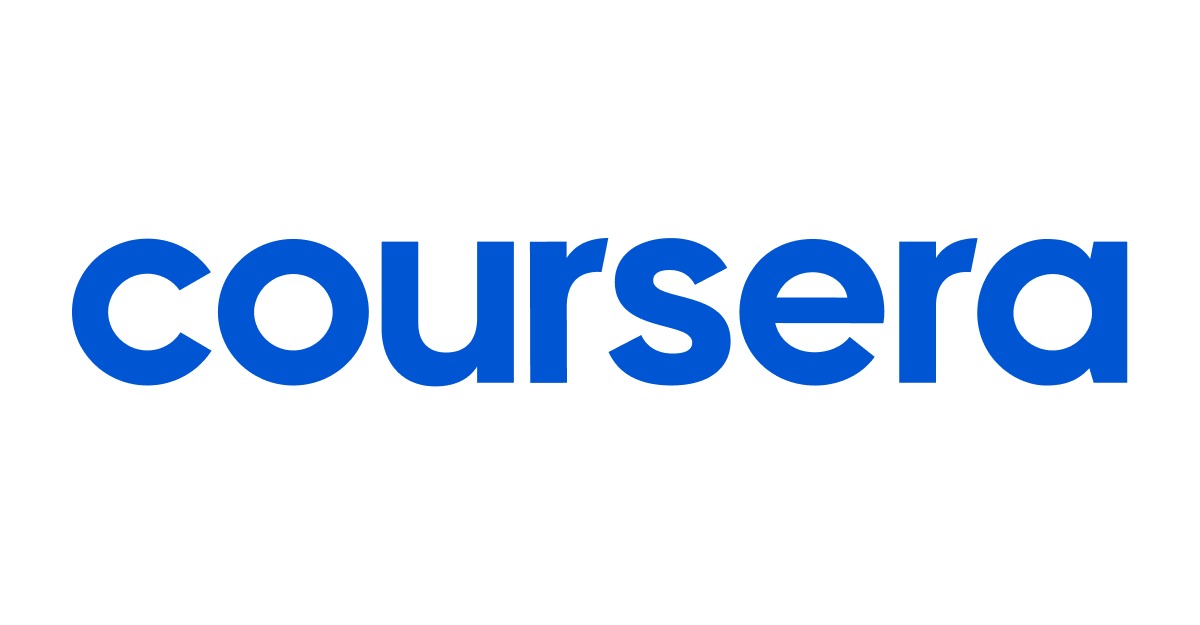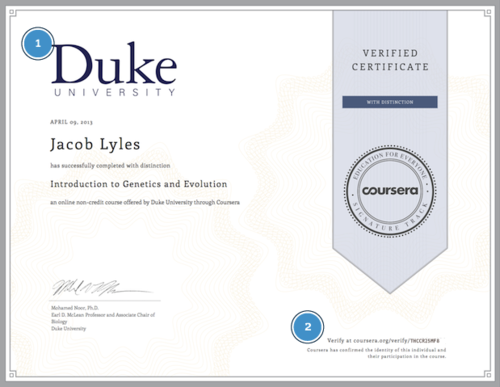An Honest Review of Coursera: The Good, the Bad and the Ugly
Whether you’re looking to advance your career, pursue a new hobby, or simply quench your thirst for knowledge, online learning platforms seem like an ideal solution. Coursera, one of the pioneers of massive open online courses, offers a wide range of courses from top universities and companies. However, while the variety and accessibility of courses are appealing, you must go in with realistic expectations about the experience.
As with any platform, Coursera has both advantages and disadvantages.Before investing your time and money, carefully evaluate if Coursera’s model suits your needs and learning preferences. The flexibility and affordability of the courses are major benefits, but you must be disciplined and driven to succeed in an online-only environment. While the courses are free to audit, earning a certificate requires payment and completion of assignments.
With an open mind, realistic expectations, and a growth mindset, Coursera has the potential to be a rewarding experience that expands your knowledge and skills. However, as with any online tool, you get out what you put in. Success with Coursera comes down to understanding both the opportunities and limitations to leverage it to your best advantage.
CLICK HERE TO EXPERIENCE THE COURSERA.ORG COURSE>>>
What Is Coursera?
What Is Coursera?
Coursera is a massive open online course (MOOC) provider that offers free and paid online courses from top universities and organizations worldwide. Through Coursera, you can take courses in a wide range of topics, earn certifications, and even full degrees.
(-) Over 3,000 courses across 13 broad subject areas including arts and humanities, business, computer science, data science, life sciences, math and logic, physical science and engineering, social sciences, and more. New courses and specializations are added every month.
(-) Partners include 200+ leading universities and companies like Stanford University, University of Michigan, Google, IBM, and Amazon. Regardless of your location, you have access to courses from prestigious institutions.
(-) Courses follow a structured syllabus and schedule. Video lectures, readings, quizzes, and hands-on assignments or projects are common. You can study at your own pace or follow the recommended schedule.
(-) Upon completion, you can earn a shareable electronic Course Certificate for a fee. Some courses qualify you for professional certifications or Specialization Certificates. A few degree programs are available as well.
(-) The course content and instructors vary in quality. Some courses feel outdated or disorganized while others are highly engaging and effective. Check reviews from past learners to determine the quality before enrolling.
In summary, Coursera gives you an affordable and convenient way to learn new skills from esteemed universities and companies. With thousands of online courses to choose from, you can develop both personally and professionally at your own pace and from anywhere in the world. While course quality varies, Coursera is a reputable source for high-quality, low-cost education at scale.
CLICK HERE TO EXPERIENCE THE COURSERA.ORG COURSE>>>
The Good: Benefits of Taking Coursera Courses
The Good: Benefits of Taking Coursera Courses
Coursera offers many benefits for lifelong learners looking to expand their knowledge and skills.
- Access to courses from top universities. Coursera partners with over 200 leading universities and organizations worldwide, including Stanford, Yale, the University of Toronto, and IBM. You can take courses in a wide range of topics from instructors at premier institutions.
- Learn at your own pace. Coursera courses are flexible and self-paced. You can complete assignments and watch video lectures on your own schedule. If life gets busy, you can pause your course progress and pick up where you left off when you have more time.
- Earn a certificate. Many Coursera courses offer a verified certificate of completion. For a small fee, you can earn a certificate to showcase your new knowledge. Some Specializations also allow you to earn a Specialization Certificate.
- Develop in-demand skills. Coursera offers courses and Specializations in high-demand fields like data science, machine learning, digital marketing, and software engineering. You can build skills that are relevant and useful in today’s job market.
- Join a global community of learners. With over 77 million registered users, Coursera has a large community of students from around the world. You can connect and collaborate with other learners taking your course. Some courses also offer opportunities for live interaction with instructors and teaching assistants.
In summary, Coursera is an excellent platform for affordably gaining knowledge and skills from reputable institutions. The abundance of courses in trending and practical topics, combined with a flexible learning format, make Coursera an invaluable resource for personal and professional development. With some time and dedication, you can achieve your learning goals and expand your mind through Coursera.
CLICK HERE TO EXPERIENCE THE COURSERA.ORG COURSE>>>
The Bad: Drawbacks of Coursera Classes
While Coursera offers many benefits, there are some significant drawbacks to consider before enrolling in their classes.
Limited Interaction and Engagement
Coursera classes typically provide little opportunity for direct interaction with instructors or personalized feedback. The discussion forums are open to all students, so questions may go unanswered or receive delayed, generic responses. Without meaningful engagement, it can be difficult to stay motivated. Some courses attempt to address this by offering virtual office hours or grading short writing assignments, but interaction remains limited.
Basic Certificate Options Only
Coursera only offers simple certificates of completion, even for specialization programs covering multiple courses. They do not provide accredited degrees or transferable credits. The certificates hold little value to employers and will not advance your formal education. If you’re looking for a credential that carries more weight, Coursera may not meet your needs.
Monetization of Previously Free Materials
Coursera originally offered all courses and materials for free but now charges fees for graded items, specializations, and course certificates. While the platform needs revenue to operate, this shift has made some content inaccessible or unaffordable for students on tight budgets. Coursera could improve by providing more free and low-cost options, especially for those in developing countries.
Dropped Support and Outdated Content
With thousands of courses, Coursera struggles to keep all content up to date. Some courses receive little attention after their initial launch and become outdated. In other cases, Coursera or the partner university may drop support for a course altogether, leaving enrolled students without the opportunity for completion or a refund. Students should keep this risk in mind, especially when paying for courses or specializations. Regularly reviewing recent student feedback on courses before enrolling can help avoid problematic or unsupported classes.
In summary, while Coursera makes informal online learning opportunities accessible at a massive scale, various drawbacks like limited interaction, lack of accreditation, monetization issues, and dropped support reduce its effectiveness and value for students. By being aware of these downsides upfront, you can make an informed choice about which Coursera classes, if any, meet your needs.
CLICK HERE TO EXPERIENCE THE COURSERA.ORG COURSE>>>
Course Quality and Instructor Expertise
Course Quality and Instructor Expertise
When determining the value of a Coursera course, examining the quality of the curriculum and the instructors’ competence is key. Coursera offers courses from top universities and organizations worldwide, so learners can expect a high level of subject matter expertise. However, course quality can vary.
Some courses provide interactive content like coding exercises, quizzes, and peer-reviewed assignments, allowing learners to apply knowledge gained from video lectures and readings. High-quality courses also offer opportunities for discussion with instructors and peers. Conversely, lower quality courses may consist mostly of passive video content with few chances for active learning or interaction.
Coursera aims to attract instructors with extensive knowledge and experience in their fields. Many are professors at reputable universities. Learners should assess instructors’ credentials and experience when choosing a course. Instructors who are engaging, provide thoughtful feedback, and make themselves available to address students’ questions indicate a dedication to learners’ success.
When available, reading reviews from past learners can give insight into course quality and instructors. Look for comments on the depth and relevance of content, interactivity, and instructor responsiveness. Learners can also browse the course syllabus and materials before enrolling to determine if the level of difficulty and topics match their needs.
While Coursera offers many high-quality courses with knowledgeable instructors, learners must evaluate options carefully. Choosing a course with interactive content, skilled instructors, and positive reviews will lead to a rewarding learning experience. With thousands of free courses across hundreds of topics, Coursera has something for everyone, but learners get out what they put in. Do your homework, and you can find courses that expand your mind through the guidance of expert instructors.
CLICK HERE TO EXPERIENCE THE COURSERA.ORG COURSE>>>
Certificates, Specializations and Degrees
Certificates, Specializations and Degrees
Coursera offers various credentials to recognize your achievements and mastery of skills. After completing a series of related courses in a specialization, you can earn a Specialization Certificate. Some specializations may lead to a Professional Certificate or a MasterTrack Certificate.
The courses you complete can also count as credit toward a full Master’s or Bachelor’s degree program offered through one of Coursera’s university partners. Over 25 reputable institutions offer degrees that incorporate Coursera courses. To earn credit, you must enroll in the degree program and pay associated tuition fees.
Most individual courses on Coursera offer a Course Certificate upon successful completion of all course requirements. To receive a certificate, you must earn a passing grade, usually 60-70% or higher, on all graded assignments and a final exam or project. The certificate verifies your accomplishment and can be added to your LinkedIn profile and resume to demonstrate your skills to employers.
While the certificates are free to obtain, Coursera charges a small fee if you want an official verified certificate that provides more credibility. The fees range from $49 to $99 per course certificate. The verified certificates feature your name, the course details, and an official insignia that links to verification of your achievement on Coursera’s website.
In summary, Coursera’s credentials provide opportunities for you to gain valuable skills and work towards academic and career advancement. The variety of programs available allows you to choose the learning path that best fits your needs and goals. With hard work and persistence, you can achieve a certificate, specialization, professional certificate, or even a full degree. The resources and community support offered through Coursera empower you to succeed.
CLICK HERE TO EXPERIENCE THE COURSERA.ORG COURSE>>>
Mobile App and User Experience
The Coursera mobile app provides a convenient way to access your courses and stay on track with your learning while on the go. However, the user experience leaves something to be desired.
Limited Course Functionality
While you can stream lecture videos and access course materials from the mobile app, many interactive course elements like quizzes, assignments, and peer reviews are not optimized for mobile. You’ll need to use the full website to participate fully in your courses. The app is best used as a companion to the main Coursera site.
Difficult Navigation
The menu system and layout of the Coursera app can be tricky to navigate. It’s not always intuitive to find the course content or tools you need. The app would benefit from a simplified, streamlined menu with bigger buttons and a search function to help you locate materials quickly. A “back” button is also needed to retrace your steps.
Syncing Issues
The Coursera app does not always sync properly with your course progress and status on the main website. At times, content you’ve already accessed on the site will show as “new” in the app or your course completion percentages can be off. This can be frustrating and confusing. Force closing and reopening the app may temporarily resolve some syncing problems, but a permanent fix is still needed.
Lack of Notifications
Unlike the website, the Coursera mobile app does not provide notifications to alert you about new course announcements, content releases, peer review deadlines, or other important updates. Not having these notifications can cause you to miss critical information that impacts your course progress. Push notifications need to be implemented to fully support students using the mobile platform.
While the Coursera mobile app makes your courses conveniently available on the go, significant improvements to the user experience are still necessary for the app to be the sole way for accessing and participating in your Coursera classes. For the best experience, use the app as a supplement to the full desktop website. With updates to address current issues, the Coursera app has the potential to become a standalone option for busy learners on the move.
CLICK HERE TO EXPERIENCE THE COURSERA.ORG COURSE>>>
Pricing and Payment Options
Coursera offers a variety of pricing and payment options to suit different learning needs and budgets.
Free Courses
The majority of courses on Coursera are offered for free. You can enroll in any course and access all course materials, lectures, and certain assignments at no cost. Though you won’t earn a verified certificate upon completion, free courses are ideal if you’re looking to learn new skills or explore different topics to determine areas of interest before committing financially.
Paid Certificates
If you want to earn a Course Certificate to showcase your achievement, you’ll need to pay a fee that typically ranges from $39 to $99 per course. Certificates verify your identity and that you completed all course requirements, including graded items. The exact fee depends on the course length and topic. Some Specializations and degrees also offer monthly payment plans to make learning more affordable.
Financial Aid and Scholarships
For those who can’t afford paid courses, Coursera offers financial aid and scholarships. When you enroll in a course, you can apply for aid to earn a verified certificate at no cost. Coursera also partners with various organizations and nonprofits to provide scholarships for some courses and Specializations. Both financial aid and scholarships have limited availability, so apply as early as possible.
Refund Policy
If you’re dissatisfied with a course or certificate, Coursera offers a generous refund policy. For paid courses, you can request a full refund within 14 days of enrolling as long as you haven’t earned a certificate. For Specializations, you have 7 days after enrolling to request a refund. Coursera will review refund requests on a case-by-case basis.
In summary, Coursera aims to make high-quality education accessible by offering flexible payment options for every learning needs and budget. With a mix of free and paid courses, financial aid, and refunds, you have little to lose by enrolling in a course. The opportunity to gain valuable knowledge and skills is worth the investment.
CLICK HERE TO EXPERIENCE THE COURSERA.ORG COURSE>>>
How Coursera Compares to Other MOOCs
Coursera offers a wide range of online courses from top universities and organizations worldwide. How does it compare to other major MOOC providers? Here are some of the main differences:
Course Selection
Coursera has a very large catalog of over 4,000 courses covering a vast range of topics. This is significantly more than Udacity or edX, especially in niche areas of study. No matter your interests, you’re likely to find courses that match on Coursera.
Academic Partners
Coursera partners with over 200 leading colleges and universities to offer courses. This includes top schools like Stanford, Yale, University of Michigan, and Imperial College London. Courses often provide the opportunity to earn a Course Certificate, which some see as more prestigious coming from a well-known university partner.
Specializations and Degrees
In addition to individual courses, Coursera offers Specializations—a series of courses that build your skills in a specific area. Completing a Specialization earns you a Specialization Certificate. Coursera also offers full online degrees and MasterTrack Certificates that count towards a degree. These options provide more in-depth learning and career benefits.
Cost
Most Coursera courses are free to audit, but if you want to access graded assignments or earn a certificate, fees apply. Certificate and Specialization fees are typically under $100, while full degrees cost between $15,000 to $25,000. Coursera frequently runs sales offering 50-75% off certificate and degree programs.
User Experience
Coursera’s platform is easy to use and navigate. The mobile app allows you to download courses to your device, so you can learn even offline. However, the large volume of students in some courses can make it difficult to get questions answered or interact with professors. Some students prefer smaller class sizes offered on Udacity and edX.
In summary, while other MOOC providers have strengths in certain areas, Coursera remains the largest and most comprehensive option for online learning with courses for any interest or skill level. The abundance of free and low-cost courses from top schools is unmatched. For career and academic advancement at an affordable price, Coursera is hard to beat.
CLICK HERE TO EXPERIENCE THE COURSERA.ORG COURSE>>>
Coursera FAQs: Common Questions Answered
Common Questions About Coursera Courses
Coursera offers a wide range of courses from top universities and organizations. However, you may have some questions before signing up. Here are some of the most frequently asked questions and answers about Coursera’s course offerings:
Do I need any prior experience or qualifications to take a Coursera course?
- No, Coursera courses are open to anyone. While some courses may list recommended prerequisites, there are no strict requirements. Coursera courses are designed for beginners and experienced learners alike.
How much do Coursera courses cost?
- Most Coursera courses are free to audit. However, if you want access to graded assignments, quizzes, and certifications, you will need to pay a course fee or subscribe to Coursera Plus. Course fees typically range from $29 to $99. Coursera Plus is $49/month and provides unlimited access to all course materials and certifications.
Are Coursera courses accredited?
- Coursera courses themselves are not officially accredited. However, some courses are developed in partnership with accredited universities and may count as credit for a degree program at that university. Check with the specific university for details. Coursera also offers Specializations and Professional Certificates that culminate in an industry-recognized credential.
How long do Coursera courses last?
- The duration of Coursera courses varies but typically ranges from 4 to 12 weeks. Shorter courses usually require 3 to 5 hours of work per week while longer courses may require a 10 to 15 hour weekly time commitment. You can complete courses at your own pace, but you must finish within the time period specified at registration to receive credit and certifications.
Do I get a certificate of completion?
- Yes, if you complete all course requirements and pass the final assessments with a satisfactory score, you will receive an electronic Course Certificate from Coursera that can be shared on social media platforms and with employers. Certificates are free to download for courses you complete at no cost. For paid courses, the certificate fee is included when you register.
I hope this helps address any concerns you may have and encourages you to keep learning with Coursera. Let me know if you have any other questions!
CLICK HERE TO EXPERIENCE THE COURSERA.ORG COURSE>>>
Conclusion
In the end, whether Coursera is right for you depends on your own needs and learning preferences. Their massive catalog of courses from top universities around the world offers an opportunity for high-quality, structured learning on almost any topic imaginable. However, the experience is largely self-directed, and courses vary widely in their level of difficulty and workload. For motivated lifelong learners looking to expand their knowledge on a budget, Coursera provides an appealing option. For those seeking intensive, guided instruction or official certification, the platform may feel lacking. By going in with realistic expectations about what Coursera does — and does not — provide, you can determine if their model of free, open online education is one that will work for you. The choice is yours. Now you have the information to decide if Coursera’s pros outweigh the cons.
CLICK HERE TO EXPERIENCE THE COURSERA.ORG COURSE>>>










